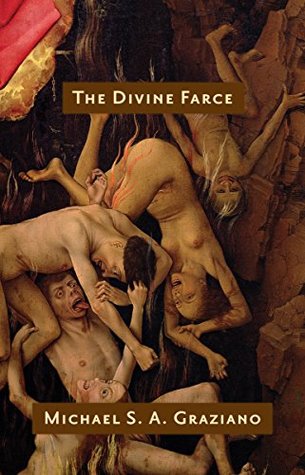More on this book
Community
Kindle Notes & Highlights
At the root of jealousy is a fear of abandonment, and we had no possibility of abandonment in that place.
A brilliant organizational trick, it was applied game theory. A person alone—hell. No matter how deeply reflective, no matter how self sufficient—eternal solitude—hell. Two people—as good as hell. Three people, a triangulated complexity, strife and forgiveness, alliance and conflict, a polyphonic piece of music sometimes dreadful in its dissonance, sometimes uplifting in its harmony—heaven. My optimistic theory was that any three people, crammed together for a long enough time, would eventually find a mutual harmony. The rules of heaven were minimalist. They were elegant.
But eternity—that was on a different level of conception. It forced the mind to acquiesce entirely and accept the here, the now, and the comfort, such as it was.
His fears seemed to be an expression of conservatism. He was afraid of losing the familiar.
Flies landed on the corners of my mouth to drink my spit.
I hated myself for being cruel. I was alone, hungry, and cruel. And I missed my friends.
Why did I want to leave a world of minimalist perfection, to explore something unknown? What can I do? It is what it is.
I saw a woman twisting biscuits into her rectum, presumably as a capacious storage for later.
So I was inducted from microcosm to macrocosm. I began to realize that my old world, as complex as it had seemed, as multiplicative as the possibilities might have been between three people, was only a scale model of the macrocosm.
I told myself that I had not so much lost two companions as gained a billion. I tried hard to feel the warmth of universal inclusion.
I’d feel paradoxically full in the stomach, empty in my heart, tired, alone, content, whole, hollow, broken and repaired, cheated and lucky, useless and essential to the cosmic pattern. On that ambivalent mood, as fascinating as a pillow, my mind would ease into sleep. Then I’d wake up, put aside whatever doubts I had, and join the battle again.
Is it enough to struggle in an endless cycle for the simple biological truths of food, water, sex, and sleep? I tried. I tried to be content. I tried not to feel nauseous about the failures of other people, to draw my satisfaction from the strength of my own muscles and bones. Success is selfish. I tried to relegate my friends to an idle dream. I pretended to a certain nonchalance, as if I didn’t need anyone and was quite well off on my own,
We were so driven by hunger and thirst, and so isolated from each other by the constant mixing of the crowd, and so numbed by the repetition of caverns and food troughs and rusty water pipes and perpetual battle, and so gratified at each orgiastic meal, that we had lost all our capacity for imagination. For vision.
To the extent that heaven above is isolation, it seems to be hell. To the extent that hell below is a crowd, it apparently is heaven. Maybe we are condemned to an endless nagging sense of discomfort balanced against comfort, satisfaction against the itch to escape.
Who made this place? Who runs it? Does it have a purpose? For myself, I seemed to have a repertoire, if not a purpose, and my repertoire was limited. I was, apparently, a wanderer. Was that the right word? I bashed my way out of one place and into another. I had fallen out of a chrysalis, fought through concrete and crowds, scaled heights, and achieved—what exactly? Ambiguity.
I never seemed to reach a goal. Maybe the exploration itself was a purpose.
The more grandiose I let my thoughts become, the less the world made sense. The more focused my thoughts became on the specific, on the mundane, on the pragmatic, the more of the mystery I understood. That in itself was a paradox worth considering.


